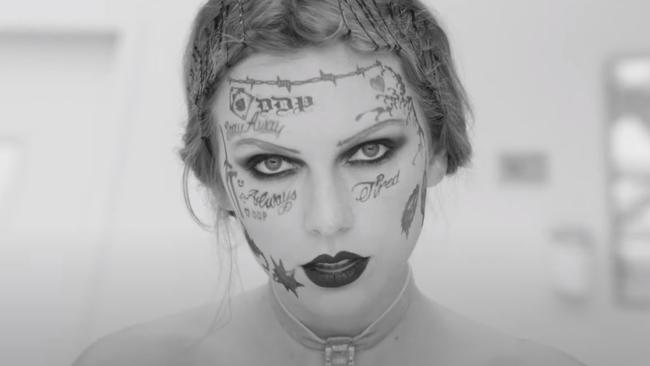The importance of being edited
In an age of unedited writing and unedited thinking, I too have broken one of the golden rules: place yourself in the background.

I count myself among the culprits who sometimes forget that less is more. Many of us have forgotten – or never learned – the art and beauty of editing, in all its forms. Editing is seen as the business of others, of experts.
For example, there is a decluttering industry where, for a pretty penny, someone will clean out your wardrobe. I admit my own efforts at a shoe audit a few weeks ago didn’t go as well as planned. (Days after the clean-out, I reclaimed a pair of red Gucci heels that I had given away to my son’s girlfriend.) But when it comes to words, clutter drives me nuts.
It is daunting to write about good writing. Every word here will be parsed, counted and judged. But the point is we should at least try harder to say less and mean more. The alternative is unthinkable – a world drowning in a blancmange of nothingness from people too lazy to edit themselves. If we don’t carefully control our own quality, why would we be concerned about lousy quality elsewhere?
The 21st century is no friend of good editing. Technology makes it too easy to ramble. Social media is a haven for the kneejerk writer, the undisciplined thinker. The problem is not that we have a short concentration span, even though the growing popularity of TikTok may suggest this is the case.
The problem is that too many people spend too long looking at rubbish content. Posting online means everyone can be a publisher of sorts. X (formerly Twitter) has moved from a 140-character limit to 280, to 4000 and even 10,000 under Elon Musk. At least the man who reaches for the moon is making people pay for their loquacious sins.
The explosion of artificial intelligence tools will make things better and worse. In the absence of clever artificial editors embedded within algorithms of our undisciplined language needs, it will be even easier to write long, turgid dross.
When the US president Woodrow Wilson was asked how long it took him to write a speech, he said: “That depends on the length of the speech. If it is a 10-minute speech it takes me all of two weeks to prepare it; if it is a half-hour speech it takes me a week; if I can talk as long as I want to, it requires no preparation at all. I am ready now.”
Politicians should be trained – as every debater is – to know that a good speech should be as long as a young woman’s skirt: short enough to keep people interested, long enough to cover the bare essentials.
‘Undisciplined writers everywhere are a window into our age of over-consumption and self-indulgence.’
My favourite book is The Elements of Style by Strunk and White. A friend recommended it to me more than 20 years ago when I first started writing for newspapers. I recall opening it to where the authors say that when a sentence is made stronger it usually becomes shorter.
“Thus, brevity is a by-product of vigour,” they write.
I thought of Strunk and White regularly when Kevin Rudd and Malcolm Turnbull led the country. They routinely used too many words and might have benefited from remembering what German theologian Martin Luther said: “If I had my time to go over again, I would make my sermons much shorter, for I am conscious they have been too wordy.” (An editor would have advised Luther to remove “to go”.)
To be fair, when I finished my own boring and very long doctoral dissertation, I needed help reacquainting myself with vigour – or rigour – too. This small book, which sits on my nearest shelf, was first published in 1918 by American professor of English at Cornell University William Strunk Jr.
EB White, a former student of Strunk, received a copy of the first edition from a friend who reportedly stole it from the Cornell University library. After writing about the book in his New Yorker column in July 1957, White later helped republish an expanded version of the book in 1959. In 2009, Time magazine lauded the 105-page book as one of the best and most influential books since the magazine started.
Dorothy Parker remarked about the book: “If you have any young friends who aspire to become writers, the second-greatest favour you can do them is to present them with copies of The Elements of Style. The first-greatest, of course, is to shoot them now, while they’re happy.”
Full disclosure: I must be a mediocre writer because I am happy. Also, I have broken one of Strunk and White’s golden rules for writers: place yourself in the background. But being happy and breaking rules can’t be helped if I am to write about the lost art of editing.
This book teaches every writer to acquire a dumpster and a polishing cloth. First one does the heavy lifting, removing any words, sentences and paragraphs that are stumbling blocks to meaning. Then, and no less time consuming, comes the polish, removing even the smallest grains of dust, every superfluous word that dulls the sharpness and clarity of meaning. Like cleaning a window, the aim is to welcome in more light.

The book’s index is elegantly simple. Its list of elementary principles and style reminders barely need more than a heading: Make the paragraph the unit of composition. Use the active voice. Omit needless words. Avoid a succession of loose sentences. Place the emphatic words of a sentence at the end. On writing about style, it’s the same. Strunk and White are like personal trainers for language: Write in a way that comes naturally. Write with nouns and verbs. Revise and rewrite. Do not overwrite. Do not overstate. Do not affect a breezy manner. Use orthodox spelling. (Would it be too much to repeat that one?) Do not explain too much. Do not construct awkward adverbs. Avoid fancy words. Be clear. Use figures of speech sparingly. Do not take shortcuts at the cost of clarity.
This book should be handed out to every student in year 8 to help stem the tide of unedited writing and unedited thinking. Undisciplined writers everywhere are a window into our age of over-consumption and self-indulgence. There are the interminable and meaningless emails, the unthinking, ill-crafted tweets, the woefully unedited and indulgent movies (Martin Scorsese’s Killers of the Flower Moon jumps to mind) and Prince Harry’s tedious memoir that should have ended right after his penis nearly froze off.
I think of Strunk and White often. Like last weekend when Taylor Swift released 30 new songs too. I love the girl but it’s just too much Taylor. What happened to understanding the appeal of less is more? Alas, critiquing this modern-day saint is not popular – and also wasted here.
To understand the importance of fine editing, watch Netflix’s recent series Ripley. It is a weak and tedious imitation of the flawless movie from 1999, The Talented Mr Ripley. I’d rather two hours and 19 minutes of pure movie perfection than endless hours of streamed drudgery.
Ditto other genres. Give me a perfect and silly romcom like Ten Things I Hate About You at one hour and 37 minutes over two hours and seven long minutes of the unclever and vapid Saltburn.
Irish author Claire Keegan must have swallowed a copy of Strunk and White. Her prose in each of So Late in The Day, Foster and Small Things Like These is the essence of magical literature. Though Keegan’s books are short, it’s not about length. It’s about editing out dross.
When I picked a Patrick White book off the shelf from my high school book room for my year 12 English elective, the sweet lady in charge advised me to choose another book. Too long, too boring, she assured me. I held tight to the book and walked off. And I haven’t let go of White’s books.
As Peter Craven writes in a recent essay, White may have been “a toff of pastoralist stock who turned in his latter days to a raging lefty” but he is also the greatest writer Australia has ever produced. The Tree of Man, as Craven concludes in The Genius of Patrick White, is “one of the most sustained attempts that has been made … to present the inner lives of ordinary people, to give fullest weight to the quality of introspection in people who do not have the trappings of education to fall back on and all that ‘chatter of cultured apes’.”
The Tree of Man is a masterpiece of clarity. White’s precise, even harsh language evokes the blunt force of the Australian landscape. White’s unembellished, honest writing personifies, without speaking down to, the very ordinary lives of his protagonists, Stan and Amy Parker.
That year, when I was 17, White introduced me to “skein”. He used it to describe the wisps of clouds that stretch across the horizon in the blistering Australian summer when one wishes for less sun.
It’s one thing to steer clear of “fancy” words, as Strunk and White recommend. But clarity often comes from settling on the perfect word. When plucked from obscurity and used well, unusual or long words enhance meaning and impact.
That – not using words to show off – is the noblest part of writing well. There is no shame reading or writing with a dictionary close by. On the contrary, learning is a joy. When one Federal Court judge wrote recently about a “brume of confusion”, readers knew exactly what he meant.
We shouldn’t confuse writing well with dumbing down our magnificent English language either. Just as some of newfangled words need to meet the bottom of a wheelie bin, some old words need a loving reboot.
In pursuit of “equity” in education, university teachers, for example, are increasingly instructing students to write in simple language, free from jargon. This has become a project to dumb down our language in the name of inclusion.
Ask any student who can write well, and they will tell you words of three or more syllables are regularly denounced as “jargonistic”. This forgets the evocative power of the perfect word.
It is useful in life, to say nothing of how stirring it is, to match our logic and reasoning with imaginative words. If universities don’t set out to teach students how to write well, who will?
When obscure but perfect words slowly die, so too will our power to express our unique experiences of the world. Words don’t exist to keep dictionary publishers in business; they enrich our lives, improve our thinking.
In the same vein, when we lose the necessary skills to edit ourselves, to express ourselves well, we lose beauty, impact and meaning. I am fortunate. I have skilled, eagle-eyed editors looking over my shoulder, nipping and tucking, polishing, removing the odd boulder too. Also, I have Strunk and White to keep me honest.




First, an apology. To borrow from sages from Cicero to John Locke, I didn’t have time to write a short column this week, so I wrote a long one instead. Indeed, many greater minds than mine have remarked on our tendency towards slothful language.